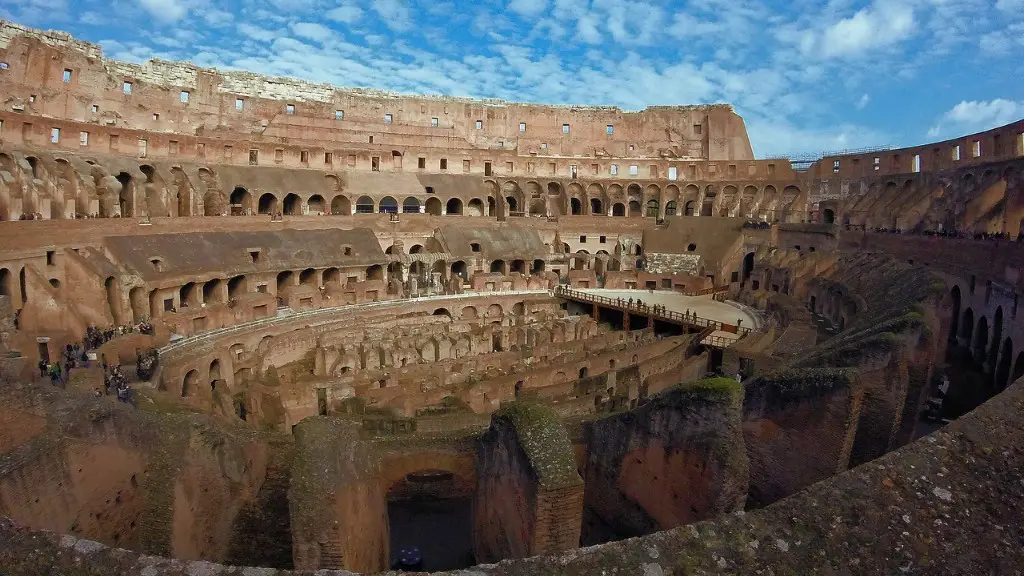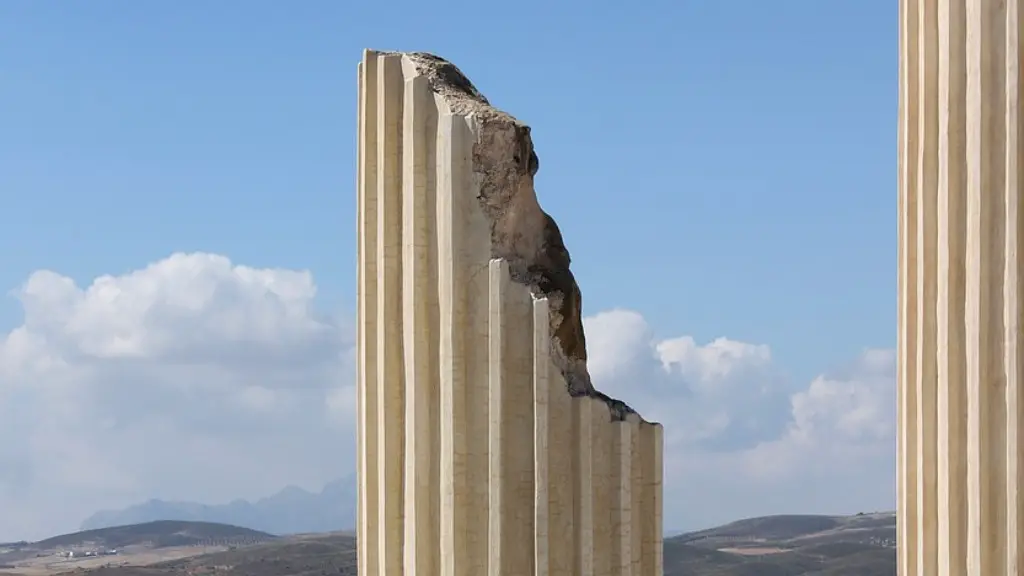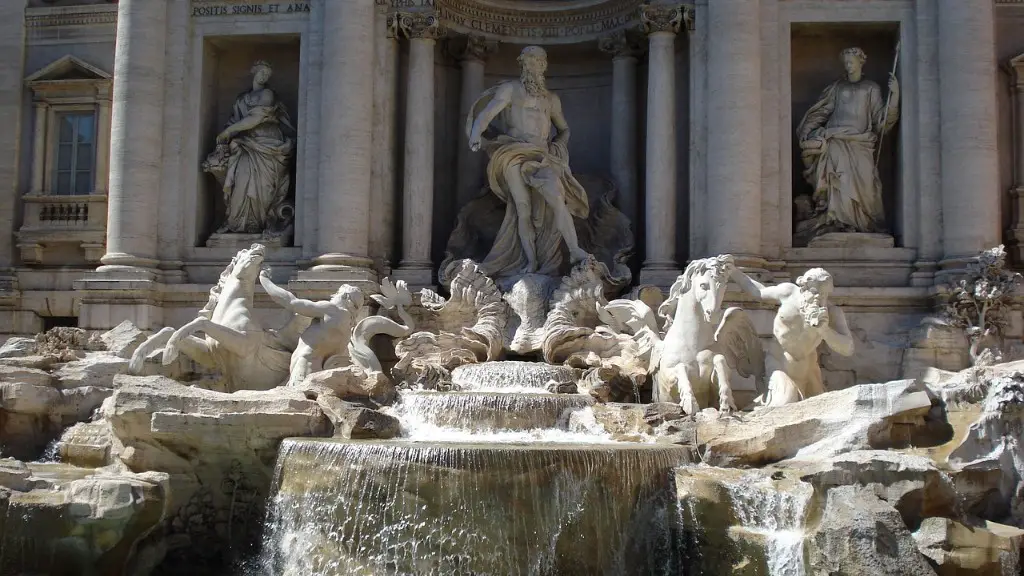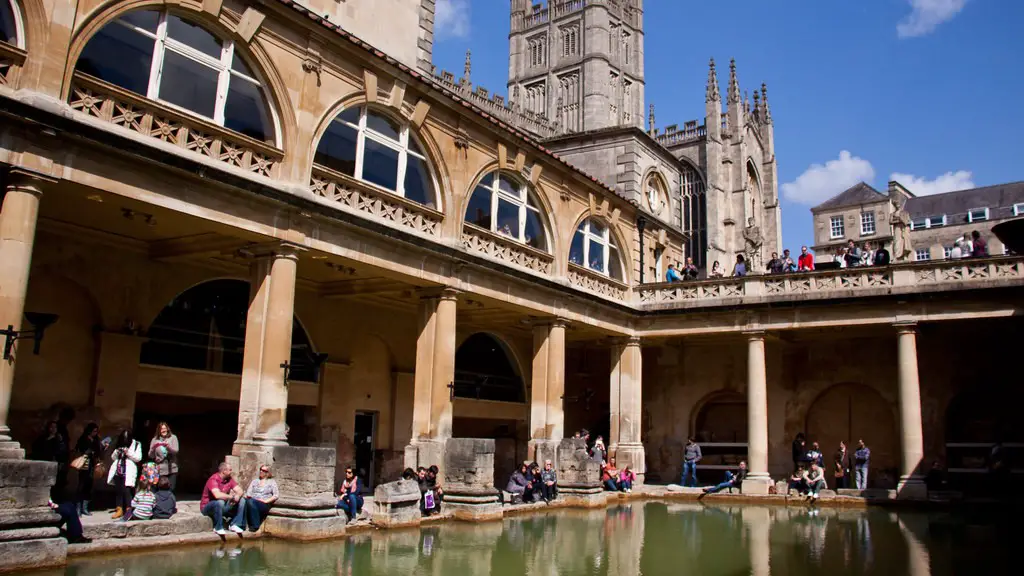Religion has been integral in all forms of an ancient society and Rome can be no exception to this. The ancient Romans had their own set of religious beliefs and rituals that were deeply connected to their everyday lives. Many of these religious beliefs can still be seen in modern-day Roman Catholicism and other forms of Christianity. Even though the Roman’s lives were governed by different gods, it was their beliefs in one God, Jupiter, that was the foundation for the religion in ancient Rome.
The gods of Rome could be categorized in two different ways. First, the Romans believed in the major gods that made up the pantheon and each of them represented a different aspect of Roman life. These gods included Jupiter, Mars, Neptune, and Minerva. Most of these gods had temples built in their honour and sacrifices were made on specific days or rituals. Secondly, the Romans believed in a group of minor gods, called the Numina, who were present in every corner and aspect of Roman life. Through these gods, the Romans were able to make sense of their world and believe that their lives were in accord with a divine power.
The practice of worshipping these gods and gods of other religions (the cult of the dead, for example) were vital parts of Roman religion and played a major role in everyday life. Through their worship, they were able to connect with the gods and ask for their protection and guidance. Every day was full of ritual acts, religious ceremonies, and sacrifices, be it at home or in the temples. Every decision made, no matter how small, was made with the gods in mind and the gods would be praised for any good fortune. Religious holidays, such as Saturnalia and the festival of Robigus (held to protect the growing grain from disease) were celebrated with great enthusiasm throughout Rome.
There were also many gender divisions when it came to religious roles and duties in ancient Rome. Women often worshipped certain female deities and even had their own priesthoods and cults. Specifically, women from the higher classes had a lot of religious power due to their social and political standing. In general, the women in Rome had a great deal of say when it came to religious matters, especially the more religious ones like the Vestal Virgins (the female priestesses of Vesta, the goddess of the hearth).
At the same time, men in Rome also had their own duties and responsibilities when it came to religion. Men were expected to properly perform religious rituals, uphold traditional laws, and attend various ceremonies. Men also had specific roles in the government, such as being in charge of the Vestal Virgins, the augurs (Roman priests that interpreted the will of the gods in public assemblies), and the flamines (priests in charge of a particular god’s duties).
The Roman religion was so important to the city that it was adopted by the Roman Empire as its state religion. This religious system was based on upholding the pax deorum (the peace of the gods) so that the gods would give their favour to the Roman government and provide prosperity. This is why temples were built all over the Roman Empire and the religious beliefs of the people were incorporated into law. With the spread of Christianity, these religious beliefs slowly began to fade away and were replaced with the newer religion.
Catholicism
One of the most relevant aspects of religion in ancient Rome is the role of Catholicism in the Empire. Catholicism was brought over to Rome by the Roman conquerors, who had adopted the faith from the Near East. This new religion was quickly embraced by the Roman Emperor Constantine and turned into the official state religion. Through this, Catholicism became the lingua franca of the Roman Empire and many of the customs and ceremonies of the old religion were incorporated into it.
The major contribution of the Roman Empire to Catholicism was the decentralization of ecclesiastical power. In the past, the Catholic Church was entirely dependent on the emperor and only functioned in Rome, but the spread of the Empire made it possible for bishops to be appointed in other cities and dioceses, thus allowing for the Church to expand throughout the provinces. This, coupled with the codification of doctrines as set forth by Constantine, made it possible for the Catholic Church to survive and thrive in the Roman Empire.
The Roman Empire also affected the development of the Catholic religion in another way, by introducing the notion of a holy trinity to the faith. Initially, the belief in a trinity of the Father, the Son, and the Holy Spirit had been a foreign concept for the Roman Empire; however, the spread of Christianity had made it increasingly popular and accepted. Therefore, the concept of the Trinity was quickly adopted by the Church as a core tenet of Catholic belief.
Cult of the Dead
The Cult of the Dead was also a vital part of Roman religion. This cult believed in the afterlife and that through performing certain rituals, individuals could honor their dead relatives, as well as receive their guidance and protection. This cult also provided a way of understanding death, by providing a basis for funerals, mourning, and ancestor worship. The rituals of this cult involved burning incense and offering gifts to the gods, as well as sacrifices and libations. Furthermore, annual feasts were held to honor the dead, and the deceased were believed to be a part of the family according to the cult.
These rituals were also seen as a way of ensuring the dead had a good afterlife and so people who wished to prevent the dead from rising and coming back to haunt the living would perform rituals known as di manes. These rituals could involve elaborate ceremonies, as well as offering food and libations, to ask the gods to provide protection and comfort for the dead.
The Cult of the Dead was also linked to the practice of ancestor worship, which involved sacrificing animals, offering food and candles, and bringing gifts to the dead, with the hope of pleasing them and gaining their help and blessing. This practice also provided an opportunity to honor the achievements of the deceased and to recognize them as a part of the family.
Paganism
Another form of religion in ancient Rome was paganism, which involved worshipping the gods and goddesses from the old religion and the cults of the dead. Paganism believed that the gods should be honored and rewarded for their acts of kindness, and the people would often build shrines and temples to various gods to facilitate this. Paganism also believed in the power of magic and would use it to attempt to bring about desired results, such as cure illnesses, overcome fears, and seek knowledge of the future. The practice of magic was mostly associated with the private cults and was usually kept from the public and from the eyes of the Romans.
Witches and sorcerers were seen as a major threat to the Roman Empire, so they were heavily persecuted and their books of spells were destroyed. Additionally, the Temple of Apollo (the god of prophecy and the god of music) had laws that forbade the practice of sorcery, as it was seen as an act of disrespect of the gods. Despite this, it was impossible to completely eradicate the belief of magic and some of it is still seen in modern day cultures, especially in Italy.
Conclusion
Religion played an important role in ancient Rome, from the belief in the gods of the pantheon and the cult of the dead, to the embrace of Christianity and the practice of paganism. This religious system was a major part of the Roman Empire and shaped the way that the people of Rome approached life and their relationship with the gods.



